Are You a Candidate for Dental Implants? Find Out Here
Dental implants have become a popular solution for people looking to restore their smile and regain confidence after tooth loss. But how do you know if you’re a good candidate for dental implants? This advanced tooth replacement option isn’t suitable for everyone, and understanding the key criteria can help you decide if dental implants are the right choice for you.
Learn about Dental Implant
A dental implant is a titanium post surgically placed into the jawbone to replace the root of a missing tooth. It serves as a strong foundation for attaching a crown, bridge, or denture, creating a natural-looking and functional tooth replacement.
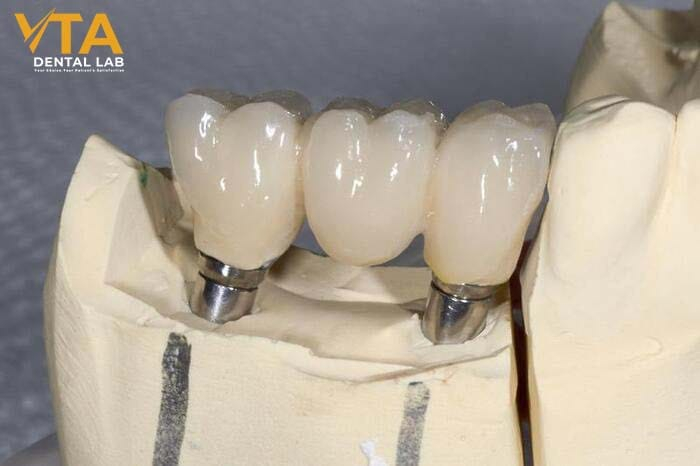
The ideal candidate for dental implants is placing one or more missing teeth
Dental implants fuse with the jawbone over time, providing stability, durability, and support for chewing, speaking, and maintaining facial structure. They are a popular and long-lasting solution for replacing one or more missing teeth.
Are You a Good Candidate for Dental Implants?
A candidate for Dental Implants is typically someone who has lost one or more teeth and is looking for a permanent solution. The ideal candidate must meet specific criteria to ensure the success of the implant.
Patients with a missing tooth
A dental implant can replace a single missing tooth. The procedure is done by attaching a crown to the abutment of the dental implant. In some cases, dentists often recommend dental implants who have a tooth extraction, have a tooth knocked out, or for a person who lost one tooth naturally.
Implants offer unique benefits that removable dentures or fixed bridges do not, such as preventing bone loss and providing comfort, fit, and durability.

Patients with a missing tooth may be candidate for dental implants
Patients with multiple missing teeth
For patients missing multiple teeth in a row, implant-supported bridges are an ideal solution. Instead of using adjacent teeth for support (as in traditional bridges), dental implants are used as anchors. This approach preserves the health of the surrounding teeth while ensuring a stable, long-term solution.
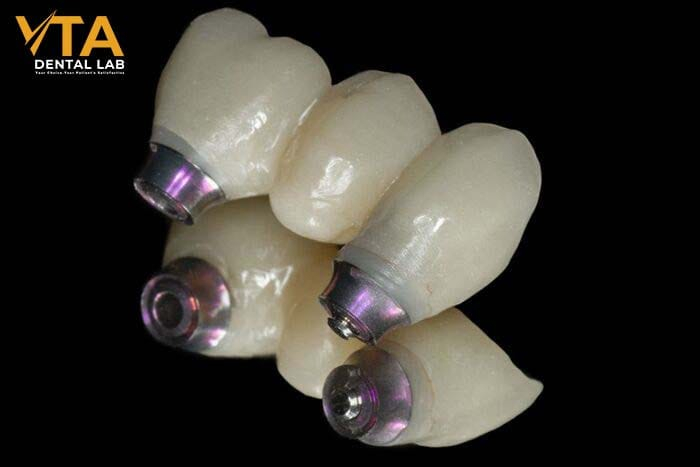
Dental implants can also replace multiple missing teeth
Patients with full-arch missing teeth
Patients who are missing all or most teeth in one arch can choose All-on-x, where 4, or 6, strategically placed implants support a full arch of prosthetic teeth. This method is less invasive and requires fewer implants compared to traditional individual implants for each missing tooth.
Compared with traditional complete dentures, dental implants are easy to care and patients can eat the widest variety of foods. Moreover, many patients also report feeling comfortable after switching from dentures to dental implants.
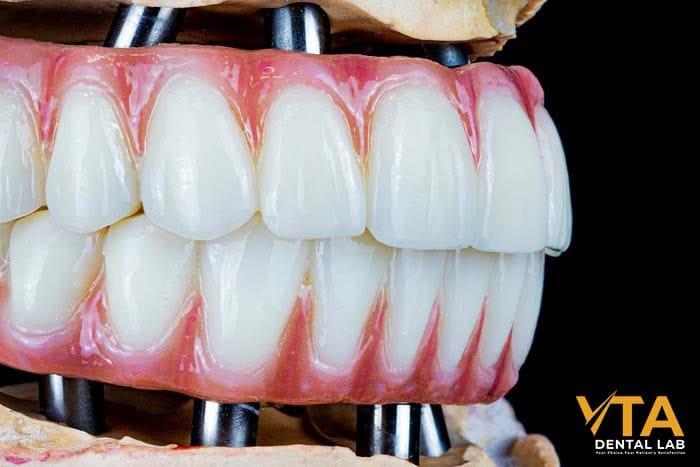
Patients with complete tooth loss can choose a hybrid denture replacement
Good gum and bone health
Patients who are candidates for dental implants must have healthy gums, free of periodontal disease or infection, as these can compromise the stability and success of implants. Another thing to consider is that dental implants need sufficient jawbone mass to anchor securely. If the patient has lost bone in the jaw, a bone graft may be inquired before implant placement.
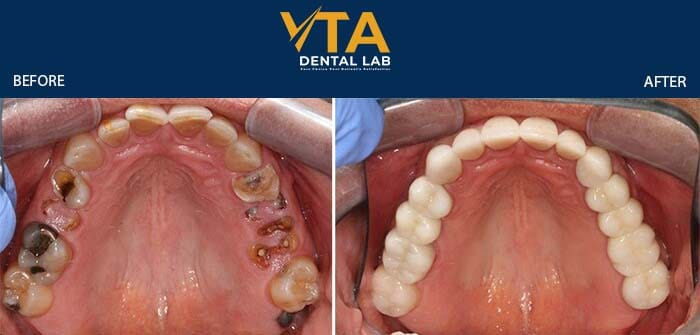
Patients may need a bone grafting procedure before the placement of the dental implants
Overall Good Health
People who do not suffer from chronic diseases such as diabetes are suitable candidates for dental implants. Chronic illnesses like uncontrolled diabetes, certain autoimmune conditions, or heart disease may interfere with the healing process.
Furthermore, smoking can negatively affect the healing process and the long-term success of the implant. While smokers are not automatically disqualified, it’s strongly recommended to quit before and after the surgery to ensure a better outcome.
The advantages of dental implants
Dental implants are the best way to replace missing teeth. Here are the key benefits of dental implants:
Improved oral function
Dental implants restore full chewing ability, allowing patients to eat a wide range of foods without fear of slipping dentures or reduced biting force. In addition, unlike dentures, which can slip and cause speech difficulties, implants stay firmly in place, allowing for clearer and more speech.
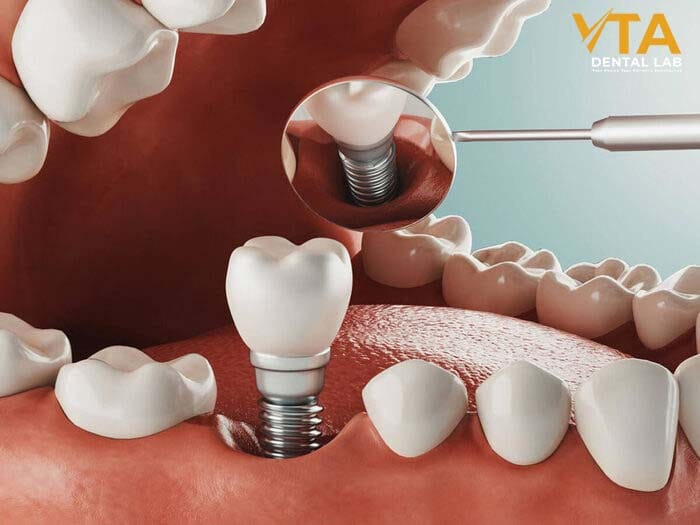
Dental implants help improve oral health effectively
Increased comfort
The implant is surgically in the bone, fuses with the bone, becoming part of the body (a process called osseointegration), providing a permanent, stable foundation for prosthetic teeth. Therefore feels more comfortable. The crowns placed on top of the implants are custom-made to match the color, shape, and size of your existing teeth, providing a seamless and natural appearance.
Bone Preservation and Facial Structure
When a tooth is lost, the jawbone in the empty area starts to deteriorate due to a lack of stimulation. Dental implants mimic the root of a natural tooth, providing the necessary stimulation to the jawbone and preventing bone resorption. This helps maintain the jawbone’s structure and strength.
By preventing bone loss, dental implants help preserve facial structure and prevent the “sunken” appearance that can occur over time with missing teeth or ill-fitting dentures.
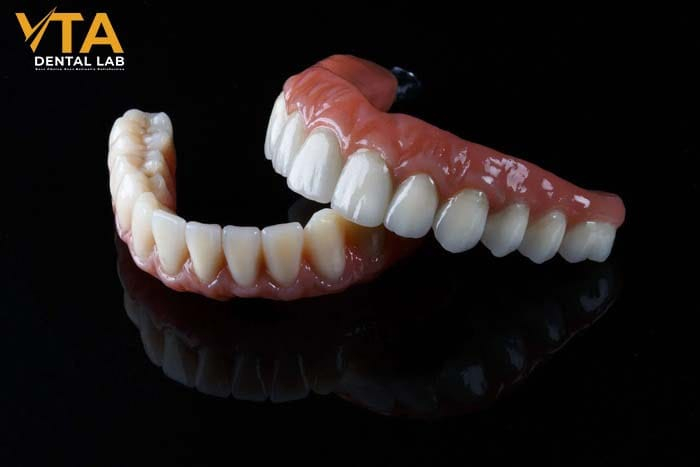
Dental implants prevent facial structure changes from tooth loss
In conclusion, if you believe you may be a candidate for dental implant treatment, it’s essential to consult with a dental professional who can evaluate your specific needs. With the right assessment, dental implants can provide a lasting solution for missing teeth, restoring both function and aesthetics to your smile.
As a full-service dental laboratory, VTA Dental Lab is confident in providing a full range of high-quality dental implants on time. Contact us today for more information at az@vtadentallab.com or ca@vtadentallab.com